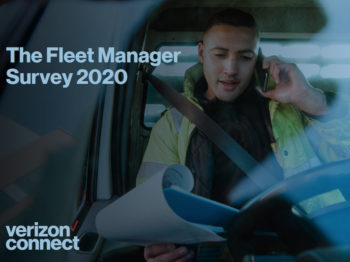Using dashcams fitted with latest artificial intelligence and machine learning could save valuable time and effort for fleet managers when it comes to theft and accident management.

While the vast majority (88%) of UK fleets currently make use of dashcam technology, less than half (49%) have technology that can automatically identify, categorise and store footage of incidents, according to Verizon.
Its research found that less than half (45%) of fleets fitted with dashcams are able to use their tech to automatically flag incidents to fleet managers, while less than a quarter (23%) are able to stream dashcam footage in real time and more than one in 10 (12%) can only access footage at the end of each driver’s shift.
In fact, the average time spent isolating footage for a specific incident is one hour and 24 minutes.
That’s despite the fact that dashcams have risen to the top of fleet managers’ agendas in terms of essential in-cab equipment. The top uses for dashcams cited by fleet managers were supporting insurance claims (42%), monitoring driver behaviour (40%) and the prevention and/or recovery of stolen vehicles (32%).
With the average fleet having lost 4.4 working days due to vehicle accidents in 2020, automating the identification, classification and storage of incident video clips could help expedite the submission of insurance claims and get fleets back on the road sooner, according to Verizon.
Derek Bryan, vice president, EMEA, Verizon Connect, said: “Dashcams have grown in popularity in recent years, and while even basic models can provide peace of mind for fleet managers, they can also be the source of many hours of additional work. The object of technology should be to make fleet managers’ lives easier, giving them the visibility and insights they need to run a better business, without creating additional work.
“The technology has come a long way in a short period of time, with new and innovative features released into the market each year. Many now apply artificial intelligence and machine learning to help managers automatically identify a range of incidents, from harsh breaking or acceleration, to traffic infringements or even vehicle accidents. Adopting these technologies will save fleet managers a lot of time and heart-ache.”

